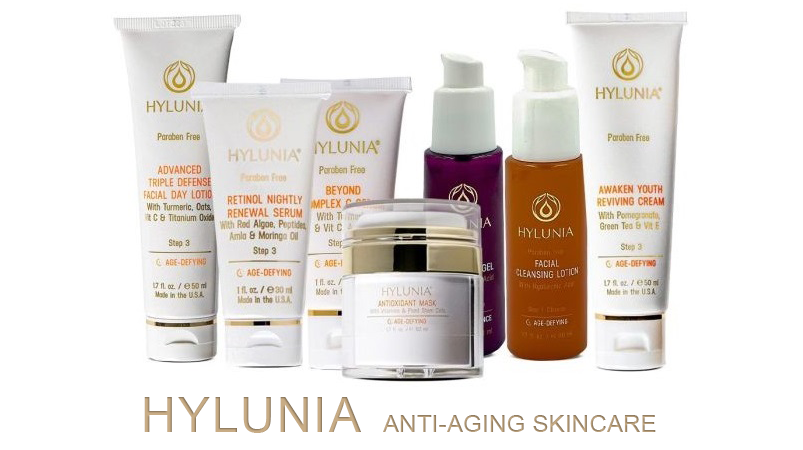
We all want skin that ages like fine wine. But keeping that fresh, youthful glow takes more than luck—it takes the right products, in the right order, used consistently. An anti-aging skincare routine doesn’t have to be complicated; it just has to work. So, if you’re ready to give your skin the TLC it needs to stay radiant, let’s go through a step-by-step guide to building an effective anti-aging skincare routine that’s simple but powerful.
Contents
Step 1: Start with a Gentle Cleanser
The first step to any effective skincare routine is a good cleanse. Removing dirt, oil, and makeup is essential to give your skin a fresh start each day and night. But as we age, it’s best to avoid harsh cleansers that can strip the skin and make it feel tight or dry.
Why Gentle Cleansing Matters for Aging Skin
As we age, our skin’s natural barrier weakens, making it more prone to dryness and irritation. A gentle cleanser helps maintain the skin’s moisture barrier, which is essential for keeping it soft and resilient. Look for sulfate-free cleansers that are hydrating and don’t leave the skin feeling squeaky clean—in this case, less squeak means more skin health.
Choosing the Right Cleanser
- Gel Cleansers: Great for oily or combination skin types, a gentle gel can effectively clean without over-drying.
- Cream Cleansers: These are ideal for dry or sensitive skin, as they add moisture while removing impurities.
Consistency is key, so make cleansing a regular part of your morning and evening routines. Think of it as the foundation of everything else in your routine.
Step 2: Add an Antioxidant Serum (Vitamin C Works Wonders)
Antioxidants are like your skin’s shield against environmental damage, which can speed up aging. Vitamin C is one of the most effective antioxidants, brightening the skin, evening out tone, and boosting collagen production.
Why Antioxidants Are Essential
Free radicals from pollution, UV rays, and other environmental factors damage skin cells, leading to wrinkles, dark spots, and loss of elasticity. An antioxidant serum, particularly one with vitamin C, neutralizes these free radicals before they can harm your skin, giving it an extra layer of defense.
How to Use Vitamin C Serum
- Apply in the Morning: Vitamin C works best during the day, when skin is most exposed to pollutants and sunlight.
- Pair with Sunscreen: This combination maximizes protection, making it a must for your morning routine.
A quality vitamin C serum can go a long way in helping you maintain a youthful, radiant glow. Just remember to store it in a cool, dark place to keep it potent.
Step 3: Moisturize and Hydrate
Hydration is essential for keeping mature skin looking plump and smooth. As we age, our skin loses its natural ability to hold moisture, making it essential to layer on the hydration. A good moisturizer will keep your skin soft, smooth, and protected from the elements.
Choosing the Best Moisturizer for Aging Skin
Look for moisturizers with ingredients like hyaluronic acid, glycerin, and ceramides. Hyaluronic acid attracts water to the skin, while ceramides help repair the skin barrier, locking in moisture for long-lasting hydration.
Using a Moisturizer in Your Routine
- Apply Twice a Day: Morning and night are the best times to moisturize, after cleansing and applying serums.
- Look for SPF During the Day: A day cream with SPF provides added protection, simplifying your routine.
When your skin is well-hydrated, it appears plumper and smoother, reducing the appearance of fine lines and giving you that youthful bounce.
Step 4: Embrace Retinol for Nighttime Repair
Retinol, a derivative of vitamin A, is one of the most effective anti-aging ingredients available. It increases cell turnover, encourages collagen production, and smooths wrinkles and fine lines over time. For aging skin, a nightly dose of retinol can be transformative.
Why Retinol Is a Game-Changer for Anti-Aging
Retinol essentially “tricks” your skin into behaving like younger skin by speeding up the rate at which skin cells renew. This leads to a smoother, more even texture and helps fade dark spots, fine lines, and wrinkles. However, retinol can be strong, so it’s essential to start slowly.
How to Introduce Retinol into Your Routine
- Start Slowly: Use a low concentration once or twice a week, then gradually increase as your skin adjusts.
- Always Moisturize After: Retinol can be drying, so a good moisturizer afterward helps keep the skin balanced.
- Use Only at Night: Retinol increases sun sensitivity, so apply it in the evening and use sunscreen during the day.
With consistent use, retinol can become the star of your routine, working hard at night so you can wake up to fresher-looking skin.
Step 5: Lock It All In with Sunscreen
Think of sunscreen as your secret weapon against premature aging. UV rays break down collagen, lead to wrinkles, and create dark spots—basically, all the things you’re trying to prevent. Daily SPF is the last step in your routine but one of the most crucial for lasting results.
Why Sunscreen Matters for Anti-Aging
Sunscreen prevents up to 80% of visible signs of aging caused by UV exposure. Even on cloudy days or when you’re indoors, UV rays can still reach your skin and cause damage. Protecting your skin from UV exposure is one of the easiest ways to keep it looking young and healthy.
Choosing the Right Sunscreen
- Use Broad-Spectrum SPF 30 or Higher: Broad-spectrum protects against both UVA and UVB rays, giving you full coverage.
- Look for Hydrating Formulas: A moisturizing sunscreen can simplify your routine, especially if your skin leans toward dryness.
Don’t think of sunscreen as optional—think of it as the insurance policy for all the work you’re putting into your skincare routine. Every layer of serum and cream is supported by this final, protective step.
Building Consistency for Lasting Results
A great anti-aging skincare routine isn’t about quick fixes; it’s about creating habits that keep your skin healthy and vibrant over time. With a simple routine focused on gentle cleansing, antioxidant protection, hydration, retinol, and daily SPF, you’re setting yourself up for beautiful skin that lasts. Stick with it, and you’ll notice your skin looking fresher, firmer, and full of life—proof that a little care goes a long way.

